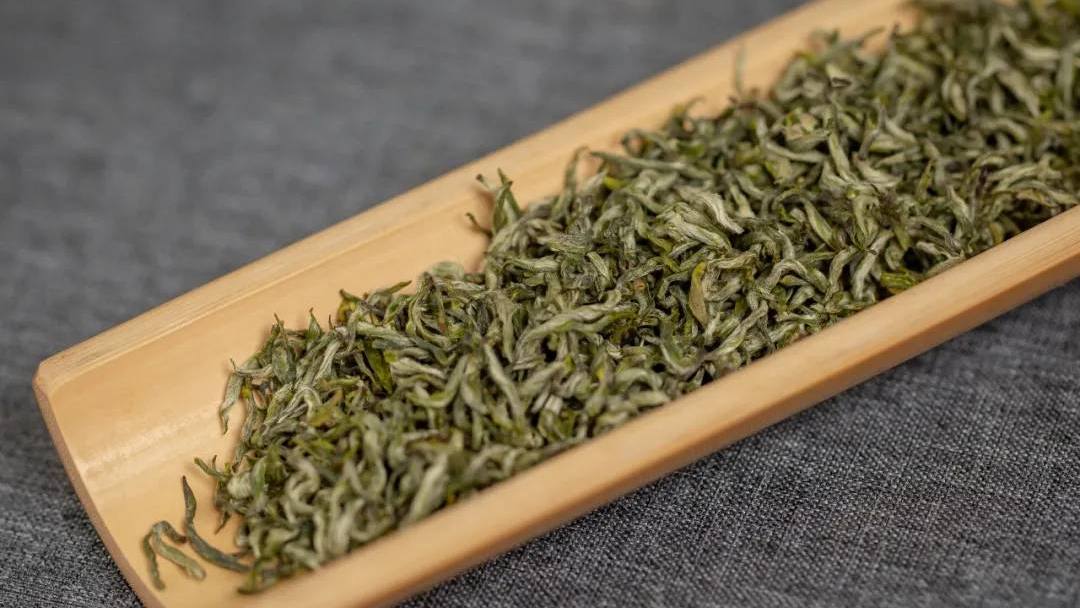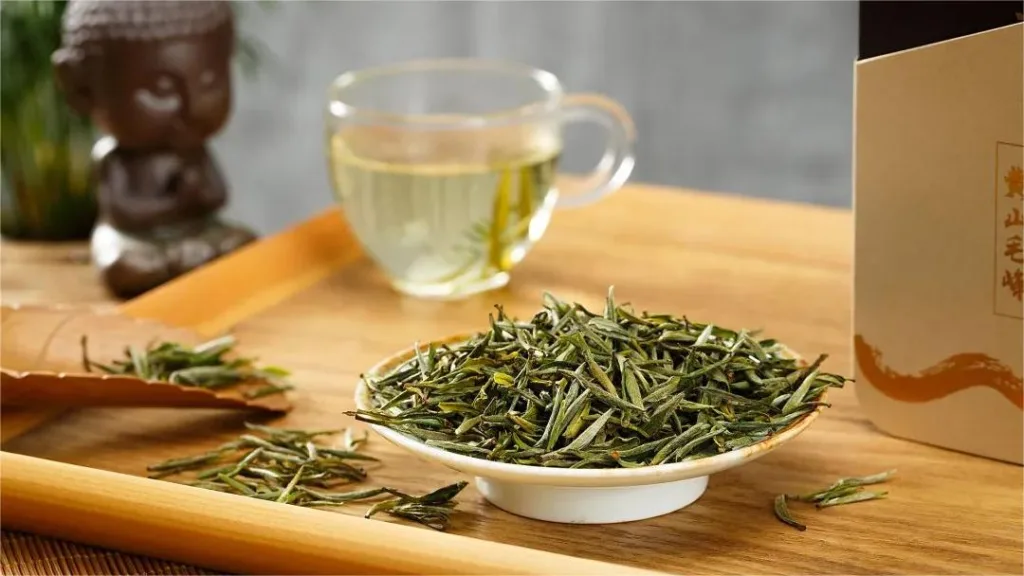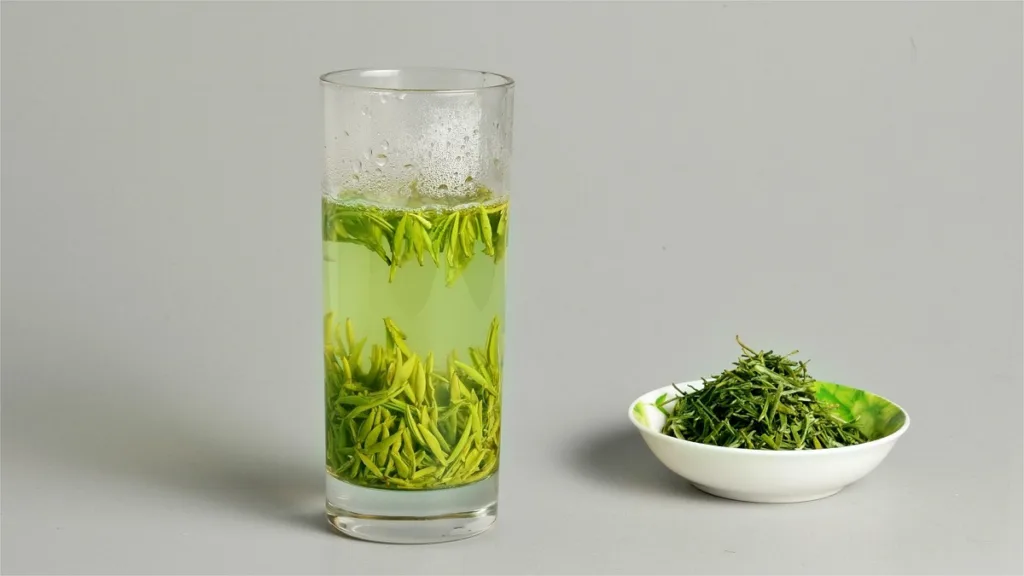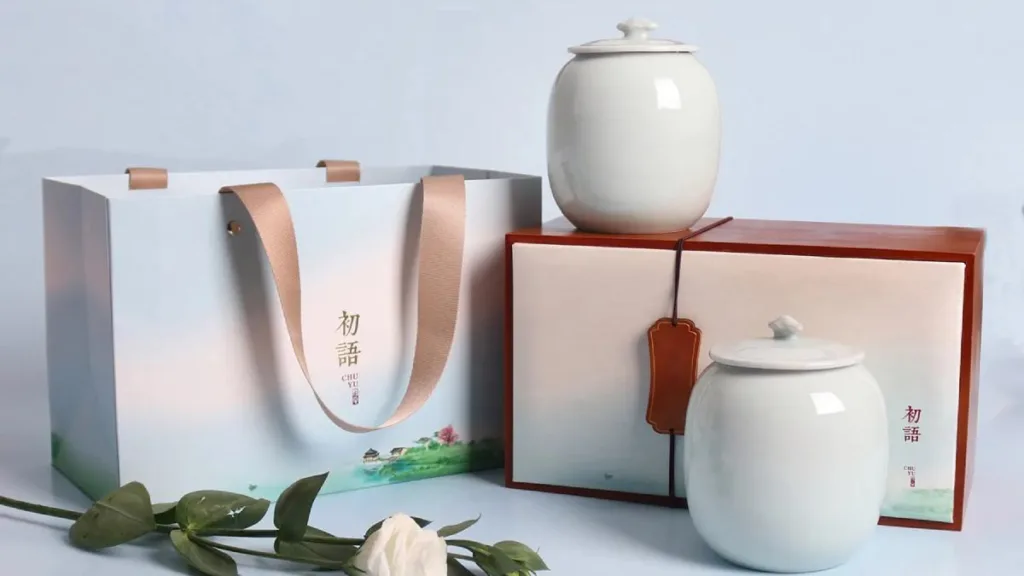Mengding Ganlu Tea, also known as Mengding Sweet Dew Tea, is a traditional Chinese green tea with a rich history and distinctive qualities. It is primarily produced on the misty slopes of Mount Mengding, a renowned tea-growing region in Sichuan, China. This tea is often referred to as “the origin of green tea” and holds a special place in the hearts of tea connoisseurs worldwide.
Mengding Ganlu is one of China’s top ten famous teas, a premier Chinese green tea, and a representative of curled green teas.
Historical Origins
Mengding Ganlu Tea traces its roots back to ancient China, specifically to the Mengding region in Sichuan Province. Legend has it that this tea was originally cultivated by Wu Lizhen, a Han Dynasty monk who planted seven tea bushes on the Qingfeng Peak of Mount Mengding. It is said that these “immortal” tea bushes thrived in a unique environment that gave birth to a tea like no other. The name “Ganlu” has two interpretations; one suggests that it means “ancestral,” and the other implies that the tea’s taste resembles sweet dew.
The historical significance of Mengding Ganlu Tea is profound, as it is considered one of China’s oldest and most esteemed teas. It is often regarded as a pioneer in the world of tea, paving the way for other famous Chinese green teas.
Distinctive Characteristics
Mengding Ganlu Tea boasts a set of unique characteristics that set it apart from other green teas. The leaves are tightly rolled, with abundant silvery-white tips, lending them a pristine and alluring appearance. When steeped, the tea yields a bright yellow-green liquor with a refreshingly sweet aroma. Its taste is smooth, rich, and distinctly sweet, leaving a lasting impression on the palate. These exceptional qualities have earned Mengding Ganlu Tea a prominent place among China’s top ten famous teas and have made it an iconic representative of Chinese green tea.
Brewing Method
Brewing Mengding Ganlu Tea is an art form in itself. To appreciate its full spectrum of flavors and aromas, follow these steps:
- Warming the Cup: Begin by rinsing your glass teacup with hot water. This step helps to warm the cup and remove any impurities.
- Water Temperature: Boil water to a temperature between 85-90°C (185-194°F). The optimal temperature allows the tea to release its full flavor.
- Adding the Tea Leaves: Place 3-5 grams of Mengding Ganlu Tea leaves into the pre-warmed cup. Gently shake the cup to help the leaves settle.
- First Infusion: Pour the hot water over the leaves, filling the cup to about one-third of its capacity. Let the tea steep for one to two minutes.
- Enjoying the Tea: Once the tea has steeped and the temperature is suitable for drinking, savor your first cup. You can usually enjoy multiple infusions from the same tea leaves, with each infusion offering a different nuance of flavor.
Health Benefits
Mengding Ganlu Tea not only delights the senses but also offers various health benefits:
- Mental Alertness: The tea contains a moderate amount of caffeine, which provides a gentle energy boost. It stimulates the central nervous system, enhancing alertness, concentration, and memory.
- Diuretic Properties: Mengding Ganlu Tea acts as a natural diuretic, promoting the elimination of excess water and waste products from the body. This can be helpful for maintaining a healthy fluid balance.
- Digestive Aid: This tea can stimulate the production of gastric juices, promoting healthy digestion. It may increase appetite and help alleviate digestive discomfort.
In summary, Mengding Ganlu Tea is a Chinese green tea steeped in history, culture, and natural beauty. Its unique characteristics, delightful flavors, and potential health benefits make it a sought-after choice for tea enthusiasts and health-conscious individuals around the world. By following the traditional brewing method and savoring its rich flavors, you can experience the timeless tradition of this exceptional Chinese green tea.




